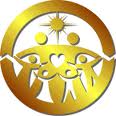Last weekend, I presented a talk at the Shehaqua Family Camp, Harvest Festival. The theme for this Festival was bridging the gap between generations. The following is an excerpt of some of the ideas I shared.
Love Shared Through Generations
I’ve been thinking a lot about the idea of three generation families since seeing off my Mom (three years ago) at the ripe old age of 97. Watching the slowly increasing number of friends who migrate from parenthood to grandparenthood, and myself being inducted into my local church’s Golden Age Club, has also caused some reflection. I’ve had insights into Unification Thought on a deeper level, in this case, especially concerning the four great realms of heart.
In Unificationism, this phrase comes up from time to time, and I simply trusted that it is significant without really understanding the meaning. I considered this concept (and the related concepts), a grand ideal which would come to fruition at some point in time. But as it is with philosophy, meanings for daily existence are couched within language which at first appears to be more speculative than practical.
The Four Great Realms of Heart actually describes an experience which has been part of human experience for millennia. Simply stated, it is the idea that there are four types of love that a person can experience in a family: starting from the earliest stage in life, one experiences children’s love, then sibling love, then conjugal love and finally parental love.
We often take these types of love for granted, or we may have emotional scars if we didn’t receive the type of love we think we should have. For this reason it’s valuable to look more deeply into what love in the family consists of. I will use Chinese characters as a base to explain the different natural aspects of love within the family.
Virtues of Parents & Grandparents Love
To give a little clarity to these kinds of love, there are primary virtues associated with each. For example, the love of grandparents, parents and elders towards young ones is translated in eastern philosophy as “benevolence”. This refers to a basic attitude of concern for the well-being, happiness and prosperity of others. For that reason, the Chinese character for benevolence is (仁) is comprised of the symbols for “person” and the number “two”. One common translation is “human-heartedness”.
Virtues of Sibling & Conjugal Love
In eastern philosophy the love of siblings, friends and spouses towards one another is translated as “fidelity”. This refers to a basic attitude of faithfulness towards ones’ peers. The Chinese character for fidelity is (忠誠)and it is composed of two parts: the first one means “loyalty” and the second means “sincerity”. The Chinese character for loyalty is composed of two parts: “center” and “heart”; and the Chinese character for sincerity is composed of the two parts “word” and “to become”. So fidelity is a realm of love that embodies sincerity and loyalty to one’s siblings, friends and especially to one’s spouse.
Virtues of Children’s Love
Finally, love of children toward their elders is called “filial piety” and also “loyalty”. As just mentioned, loyalty indicates a heart which has a center other than oneself. The two characters for filial piety refer to an “elder” and a “younger”; the former being written atop the latter. The visual inference is that of a strong young one carrying their aged parent or grandparent on their back. (picture)
Key to these ideas is their motivation: these are not merely duties and obligations, but are rather the concrete expressions of love. In fact, loyalty, filial piety and fidelity are responses evoked by the primary form of love: benevolence, which flows into the family from the parental position.
God’s Love
Another key idea that Unificationism introduces is that these four types of love are the ways through which individuals experience the full gamut of the love of God.
The presence of these four loves is the foundation for developing a deeper relationship of respect and support between the generations. The fullness of God’s love (as the original Parent of humankind) can be experienced through the vertical relationships of grandparents, parents and children, and the horizontal relationships of husband & wife and siblings.
This made me think of how my father and mother supported and advised me, when they were aged and infirm and I was the breadwinner of our 3-generation family. They were always there to give me guidance, but the day-to-day affairs of actually running the household were the responsibility of my wife and I.
Ethics based on God’s Love
A deeper study into Unification Thought reveals the foundation for a new ethics based upon the the four great realms of love. God is the origin of love, which is expressed most clearly through the family. In that ideal, the way good people raise their children is with awareness that they should be noble people, capable of providing an example of virtue, inspiration and even leadership to others.
“Human beings are born in love, raised in parental love, and grow up as they extend their love horizontally to relatives and friends. A stage in the development if horizontal love is completed when they meet a partner of the opposite sex and grow together as a couple. In their conjugal union, the couple represents the union of heaven and earth. The fruit of that love is the children they bear. Children are a result of that love, born from the core of the heart.”
“Those children, born from a man and a woman who share love based on a deep heart, create a path for the parents that will take them to the central point of love. When they follow this path to the center, they will meet God. By having children as fruits of love, human beings come to deeply experience the love by which God created human beings and all things. By loving their children with the same love that they received as they grew up, they can have a deep experience of the parental love of God.” SMM – True families: Gateway to Heaven p. 51 – 52
“If you love God and love humanity as much as you love your family, that is the basis for everything.” SMM – True families: Gateway to Heaven p. 20
In conclusion, Unification Thought holds out the possibility for an elevated, illuminated experience of the family which leads to a better world. It is a vision of a family that is appropriate for a new age, in which new patterns of love and living can be sought after.













Trackbacks/Pingbacks
[…] published in Faith Fusion Sept 28th, […]